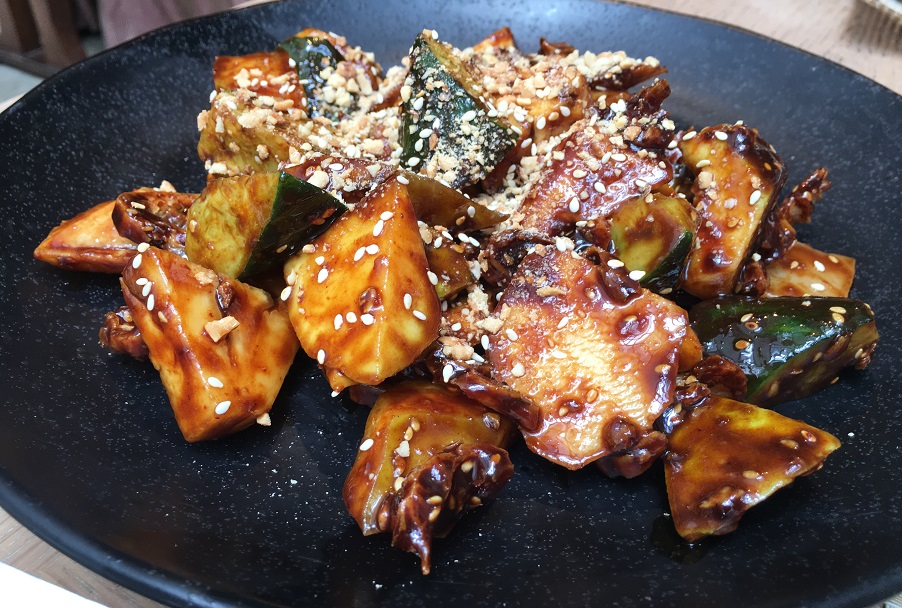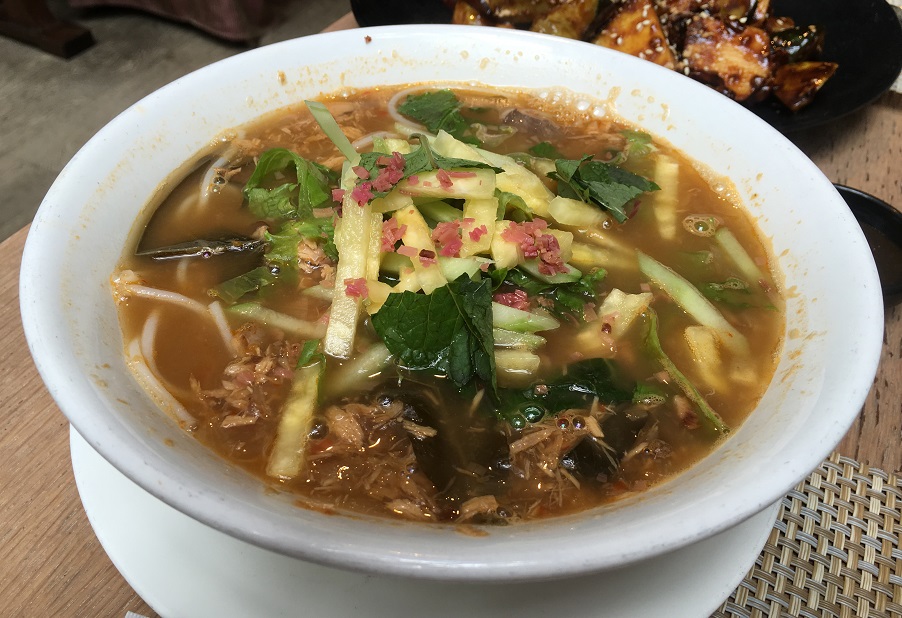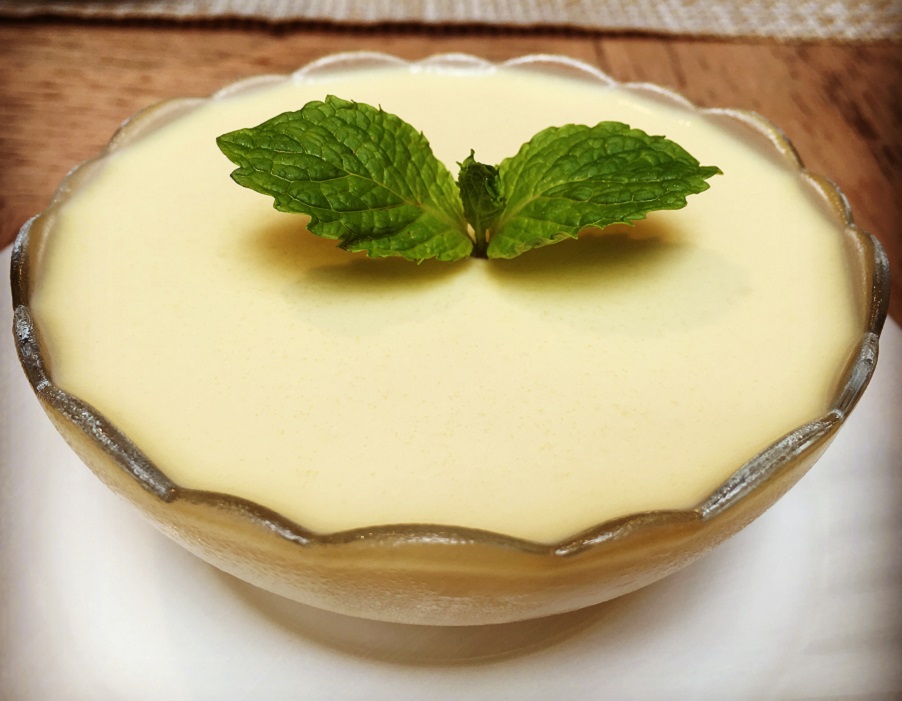Conveniently located in the slowly gentrifying neighbourhood of Shek Tong Tsui is Café Malacca, the best Malaysian restaurant in Hong Kong. That, however, is not such a bold claim. This strength has been almost universally acknowledged by my Malaysian and Singaporean friends and food critics alike. And, frankly there isn’t all that much competition.
Rather, what I realised on my recent visit here is that ranking Café Malacca in the context of Malaysian food available in Hong Kong only would be to undersell how truly delicious the restaurant’s food is. I think it could rightly compete for a spot on a top 25 list of restaurants in Hong Kong, period. This excellence is a testament both to the strength of the cuisine itself and the particular pride demonstrated at Café Malacca in sourcing the best ingredients to execute typical Malaysian dishes to perfection.
Indeed, there seems to be some good company in my thought process. I was pleasantly surprised to find that Hong Kong native son and actor Chow Yun Fat was seated with his mother and other family members at a nearby table during my recent visit. I later learned from friends and former Café Malacca staff members alike that Mr. Chow can quite frequently be found there as it is one of his mom’s favourite restaurants.
I started this recent meal with a kopi-o (HKD32), hot coffee freshly brewed from specialty Malaysian roasted coffee beans and served with condensed milk, and a salad of rojak (HKD82). The rojak turned out to be the meal’s absolute highlight. Rojak is a vegetable and fruit salad common in Malaysia, Singapore and Indonesia with a number of varieties and cultural signifiers in different regions. The word rojak itself means “mixture” in Malay and is apparently used colloquially to refer to the ethnic diversity of Malaysia itself.

Rojak
The rojak here is fruit-based and includes jicama, pineapple, rose apple, cucumber, sliced fried Chinese dough-sticks and a little bit of chopped squid all mixed and coated with a thick Penang-style rojak paste of shrimp paste, sugar, chilli and calamansi lime juice. This perhaps unlikely sounding mixture of ingredients produces an incredibly refreshing, summery salad balanced with bursts of sweet, sour and spicy tastes and a range of textures – from the crunchy jicama and cucumber to the crispy dough stick and the pleasantly chewy squid. I highly recommend it.
For filling carbohydrates, my companion and I selected the Penang assam laksa (HKD98), which I have had at Café Malacca before, and the mee siam (HKD92) which I had not previously tried. A coconut milk-rich laksa noodle dish listed as Singapore Laksa is also offered on the menu, but I suggest trying the sour assam variant that is less commonly available outside of Malaysia and Singapore.

Penang assam laksa
The word assam itself denotes sour flavoured ingredients and the delicious sour broth at Café Malacca is well stocked with thick noodles and shredded fish and garnished with pineapple julienne, cucumber and onions and a sticky black sweet-and-salty shrimp paste to add to taste. Compared to the Singapore laksa, the assam laksa feels lighter but no less flavourful or satisfying.
Mee Siam is a Thai inspired rice vermicelli dish also with a tangy, sour gravy topped generously with sliced hard-boiled egg, peeled prawns, bean curd and a calamansi lime for added tartness. The flavour of the Mee Siam was also delicious but perhaps redundant with the assam laksa on this visit.
For a vegetable dish, I tried a classic sambal belachan with ladies fingers (HKD72, pictured above). Sambal belachan is a paste made by mixing crushed chilies with roasted shrimp paste, sugar and calamansi juice. A classic Malaysian vegetable preparation is to stir fry this paste with a fresh green vegetable like water spinach or, in this case ladies fingers, also known as okra. The okra was prepared perfectly, cooked through but retaining enough of its form for some texture to balance the chilli paste. The vegetable wasn’t as unique as the rojak or the assam laksa but was executed perfectly for a good balance to the meal.
The food having been so delicious to that point, I couldn’t resist to try a few of the desserts from the eight-item dessert menu. The kaya toast (HKD35), which I have had before in Singapore, was definitely a notch above what you can get at Toast Box. The kaya paste here had a home prepared taste to it and was layered onto the neatly quartered toast more thickly to allow the rich, sweet taste of the pandan flavoured coconut jam to be fully enjoyed.

Kaya toast
The highlight of the dessert course, however, was the musang king durian pudding (HKD68). Musang king, noted for its deeply yellow flesh reminiscent of turmeric, is considered the highest grade of commonly consumed durian – so much so, that one must beware of vendors passing off lesser grades as musang king. At Café Malacca, the genuine article produces an amazingly creamy pudding rich with the distinctive but not overwhelming durian flavour that might convert even the most durian-resistant diner.

Musang king durian pudding
When all was said in done, two of us were full and supremely satisfied. My only question is, “Why I haven’t been coming here more often?” That is something which will surely change.
Café Malacca: 2/F, Hotel Jen, 508 Queen’s Road West, Shek Tong Tsui (Google Maps)
About the Hungry Lawyer: Marc Rubinstein, born in Baltimore, USA, has been in Asia for nearly 20 years with 13 of those in Hong Kong. He has split his career between banks and law firms, and is currently the general counsel of an Asia-based real estate and alternative energy investor. Marc is a co-founder and co-chair of the Hong Kong Gay & Lesbian Attorneys Network, and previously chaired the Nomura Gay & Lesbian Network, Asia. In addition to being a hungry lawyer, he has run three marathons, eight half-marathons and completed the Hong Kong Oxfam Trailwalker.
Other columns from the Hungry Lawyer:
Hungry Lawyer: Maison Libanaise, a welcome addition to the Middle Eastern restaurant scene
Hungry Lawyer: Little Chilli in North Point offers Sichuan cuisine with no frills and maximum flavour
Hungry Lawyer: Five great restaurants for a first date
Hungry Lawyer: Sushi Imamura for sushi that can truly claim to be Japanese
Hungry Lawyer: My favourite French bistro, Les Fils à Maman
Hungry Lawyer: Chicken on a Pole at Kowloon’s Tai Chung Wah
Hungry Lawyer: Man Wah, an elegant alternative for dim sum at the Mandarin Oriental
Hungry Lawyer: Beefbar, a Monte Carlo meatery that does beef right
Hungry Lawyer: La Cantoche, a hipster bistro in Sheung Wan that needs to up its game
Hungry Lawyer: Indian Village, a hole-in-the-wall in the heart of Mid-Levels
Hungry Lawyer: Bashu Garden, a Sichuan gem in a quiet part of Sai Ying Pun
Got a tip? Send it to us at hongkong@coconuts.co





Reader Interactions